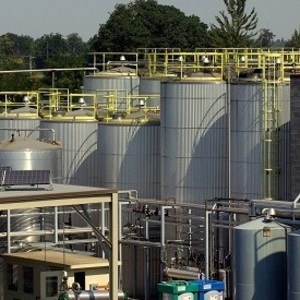West Coast biodiesel consolidation: Crimson acquires SeQuential

Photo: SeQuential
October 22, 2018
BY Ron Kotrba
California-based biodiesel producer Crimson Renewable Energy LP has acquired SeQuential, a vertically integrated biodiesel producer based in Oregon. With the acquisition, Crimson will gain increased feedstock supply options for its biodiesel production facility in Bakersfield, California, and expand its ability to supply ultra-low carbon biodiesel to customers all along the West Coast.
Crimson and SeQuential will continue to operate under their existing brands. Harry Simpson will serve as CEO for both Crimson and SeQuential, and Tyson Keever will take on the role of chief operating officer for the combined companies.
Advertisement
Advertisement
The SeQuential management team will continue in their current roles and focus on expanding SeQuential’s regional used cooking oil and restaurant service operations and its Oregon biodiesel production and marketing.
“SeQuential has a long history as a respected industry player with a strong brand and biodiesel market presence in the Pacific Northwest, and a rapidly growing West Coast used cooking oil and trap grease collection business that collectively made enormous strategic sense for Crimson as we sought to expand our operations and footprint beyond our current position as California’s largest biodiesel producer,” Simpson said. “Together, our combined operations will form the largest biodiesel production and marketing footprint on the West Coast, integrated with one of the largest used cooking oil collection operations in the western United States.”
Advertisement
Advertisement
Crimson operates a 24 MMgy multifeedstock biodiesel plant in Bakersfield, California, and is currently constructing an additional 12 MMgy of production capacity. The new capacity will utilize the RepCat process developed by Austria-based BDI-BioEnergy International, a technology that employs a recyclable catalyst and can efficiently convert high-FFA material such as sewer grease into quality biodiesel.
SeQuential operates a 17 MMgy biodiesel production facility in Salem, Oregon, and makes its biodiesel from used cooking oil it collects from thousands of restaurants and businesses throughout the region.
Related Stories
At the University of Missouri, plant biochemist Jay Thelen is using arabidopsis as a powerful model to explore ways to boost oil production — an important step toward creating more sustainable, plant-based energy sources.
Iowa farmers have a new market opportunity for their 2025 soybean crop. Landus is expanding its Clean Fuel Regulation initiative, made possible by recent policy changes expected to increase Canada's demand for liquid biofuel.
Topsoe, a leading global provider of advanced technology and solutions for the energy transition, has been selected as the renewable diesel technology partner for CountryMark’s Mount Vernon, Indiana refinery.
The U.S. exported 35,953.6 metric tons biodiesel and biodiesel blends of B30 or greater, according to data released by the USDA Foreign Agricultural Service on Aug. 5. Biodiesel imports were at 2,148.9 metric tons for the month.
XCF Global leverages Alfa Laval technology to enhance pretreatment capabilities at New Rise Reno facility
XCF Global Inc. on Aug. 5announced it leverages Alfa Laval Inc. pretreatment technology at its New Rise Reno biorefinery, a sustainable aviation fuel (SAF) plant located in Nevada. The pretreatment technology enhances feedstock flexibility at the plant.
Upcoming Events










